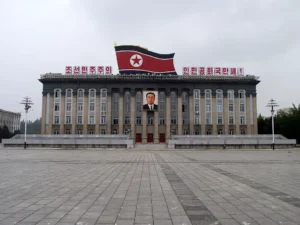According to Pakistani reports, the attacks targeted terrorist camps in Iranian soil.

Pakistan carried out missile attacks on Iranian soil, resulting in nine deaths, following Iran’s air strikes on Pakistani territory on Tuesday night.
Pakistan claimed that it had targeted “terrorist camps” in Iran’s south-eastern province of Sistan-Baluchestan, where several militant groups operate.
Iran denounced the Pakistani assault, which it said had claimed the lives of three women, two men and four children who were not Iranian citizens.
The mutual air raids occurred amid a high level of tension in the Middle East, where multiple conflicts are unfolding.
Israel is engaged in a war with the Palestinian faction Hamas in Gaza and exchanging fire with Iran-backed Hezbollah in Lebanon, Iran-backed militias in Iraq and Syria are attacking US troops, and the US and UK have launched strikes on the Iran-backed Houthis in Yemen, who have been targeting maritime vessels.
Pakistan’s foreign ministry said that it had conducted the strikes near the Iranian city of Saravan based on “reliable intelligence of imminent large-scale terrorist plots” and stated that it “fully respects” Iran’s “sovereignty and territorial integrity”.
Pakistan’s army said in a separate statement that the “accurate strikes” were carried out with drones, rockets and long-range missiles and aimed at the Balochistan Liberation Army and the Balochistan Liberation Front.
Both groups are involved in a long-running struggle for more autonomy in Balochistan, a remote region in south-western Pakistan.
Pakistan had strongly condemned Iran’s strike on Tuesday, which hit an area of Pakistan’s Balochistan province close to the Iranian border and which Islamabad said had killed two children.
Iran maintained that its strikes were directed only at Jaish al-Adl, or “army of justice”, an ethnic Baloch Sunni Muslim militant group (previously known as Jundullah) that has carried out attacks inside Iran, and not Pakistan’s people.
Iranian state media reported on Thursday that Tehran had summoned Pakistan’s chargé d’affaires over the strikes. Pakistan had earlier recalled its ambassador and prevented the Iranian envoy from returning.
China, Turkey and the Taliban regime in Afghanistan have all urged calm and dialogue. Earlier in the week Iran also struck targets in Iraq and Syria. It said it had hit Islamic State and Israel’s Mossad intelligence agency, both of which it said had been involved in a bomb attack in the Iranian city of Kerman earlier this month which killed 84 people.
Iran and Pakistan have complex but friendly relations. Their ministers met at Davos this week and their navies conducted joint exercises in the Strait of Hormuz and the Gulf.
The two countries have similar worries about the lawless border area, where drug traffickers and militant Baloch groups are very active.
After both sets of air strikes, each side seemed eager to stress that these did not constitute attacks on a friendly neighbour.
Tehran’s reaction to the Pakistani strike appears relatively restrained and the authorities have said that the victims, who included women and children, were not Iranian nationals.
Michael Kugelman, South Asia director at the Wilson Center, said that while Pakistan’s retaliation increases the risk of escalation, “it also provides an opportunity to step back from the brink”.
“Effectively, the two sides are even now. Islamabad had a strong incentive to try to restore deterrence, especially with Iran on the offensive around the wider region deploying direct strikes and proxies to hit out at threats and rivals. Effectively, if Pakistan had held back, it would have faced the risk of additional strikes,” he said.
Others suggested that the government in Islamabad was under domestic pressure to respond. The country, which saw its former leader Imran Khan removed nearly two years ago, is holding an election next month.
“There was a lot of public pressure on the government to do something and so they have done this just to prove that they are not less than [Iran], this act of sabre-rattling,” said retired Lt General Asif Yaseen, a former Pakistani defence secretary.







